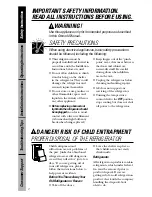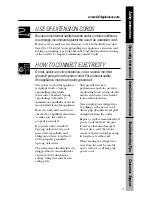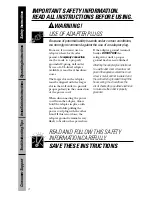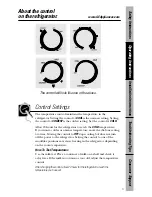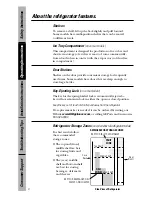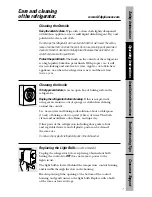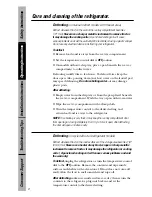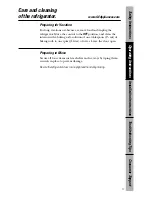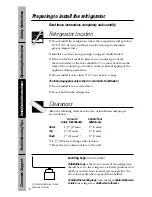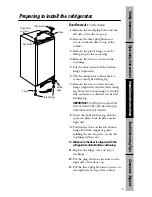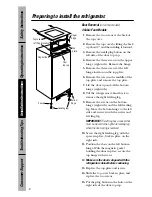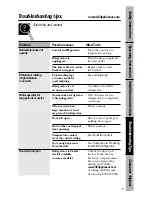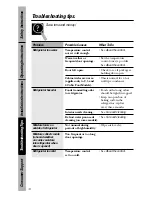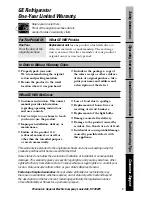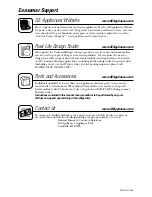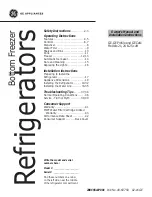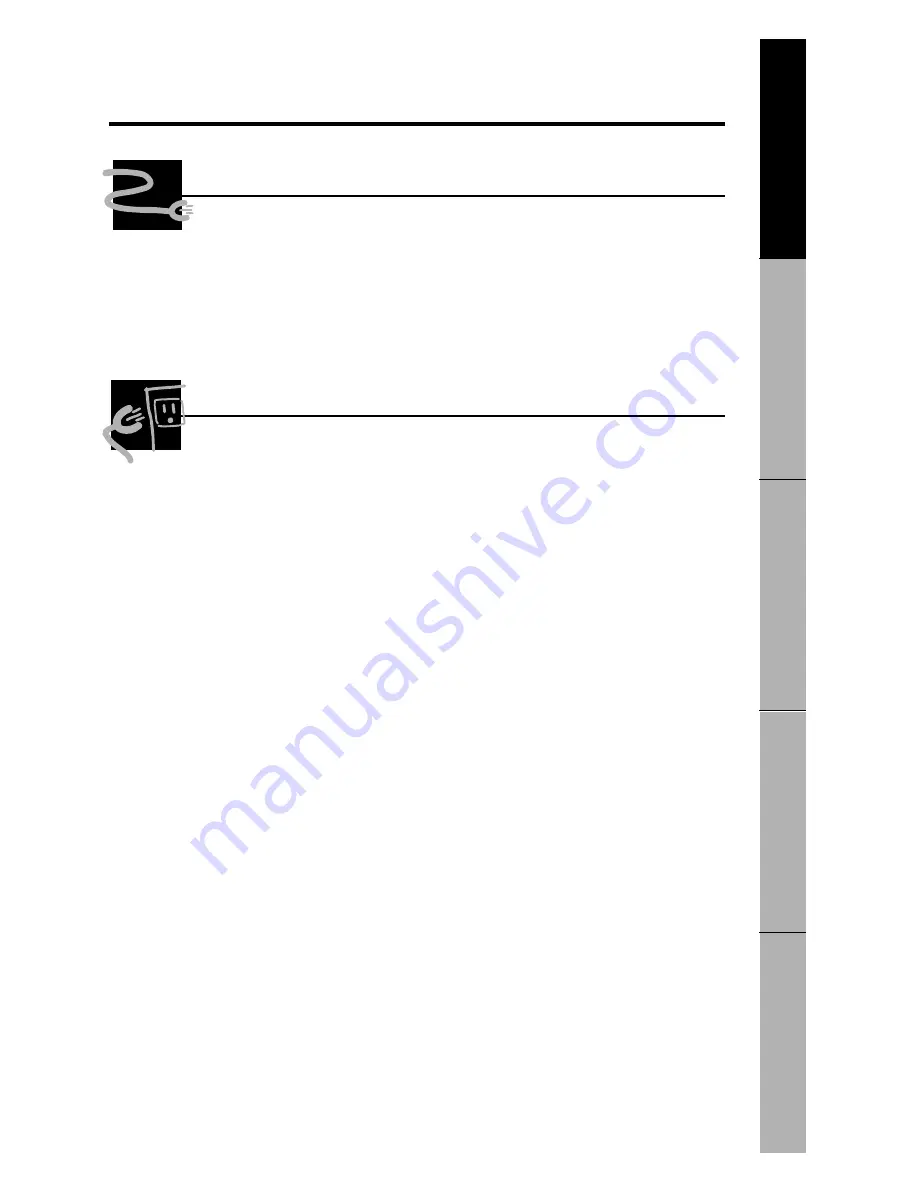
www.GEAppliances.com
3
Safety Instructions
Operating Instructions
Tr
oubleshooting T
ips
Consumer Support
Installation Instructions
USE OF EXTENSION CORDS
Because of potential safety hazards under certain conditions,
we strongly recommend against the use of an extension cord.
However, if you must use an extension cord, it is absolutely necessary
that it be a UL-listed, 3-wire grounding type appliance extension cord
having a grounding type plug and outlet and that the electrical rating
of the cord be 15 amperes (minimum) and 120 volts.
HOW TO CONNECT ELECTRICITY
Do not, under any circumstances, cut or remove the third
(ground) prong from the power cord. For personal safety,
this appliance must be properly grounded.
The power cord of this appliance
is equipped with a 3-prong
(grounding) plug which
mates with a standard 3-prong
(grounding) wall outlet to
minimize the possibility of electric
shock hazard from this appliance.
Have the wall outlet and circuit
checked by a qualified electrician
to make sure the outlet is
properly grounded.
If you have only a standard
2-prong wall outlet, it is your
personal responsibility and
obligation to have it replaced
with a properly grounded
3-prong wall outlet.
The refrigerator should always be
plugged into its own individual
electrical outlet which has a
voltage rating that matches the
rating plate.
This provides the best
performance and also prevents
overloading house wiring circuits
which could cause a fire hazard
from overheated wires.
Never unplug your refrigerator
by pulling on the power cord.
Always grip plug firmly and pull
straight out from the outlet.
Repair or replace immediately all
power cords that have become
frayed or otherwise damaged.
Do not use a cord that shows
cracks or abrasion damage along
its length or at either end.
When moving the refrigerator
away from the wall, be careful
not to roll over or damage the
power cord.


